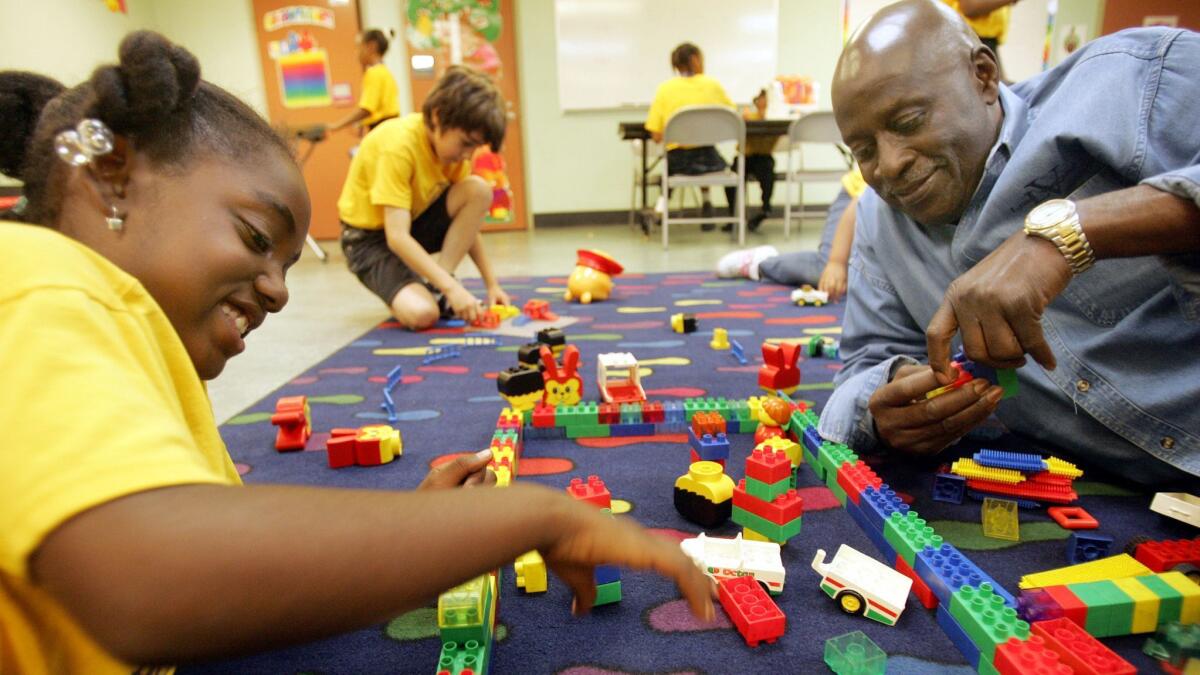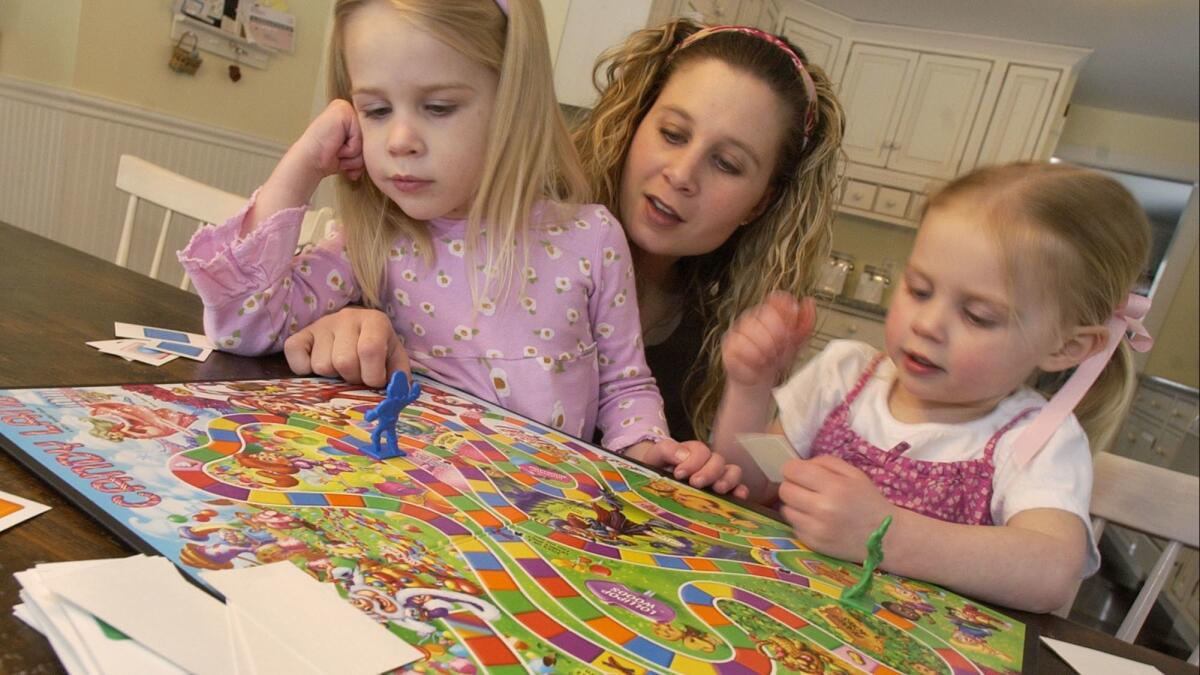Holiday gift advice from pediatricians: Skip the electronic toys and go with the classics

- Share via
The holiday shopping season is underway, and the nation’s pediatricians have some advice for the parents, grandparents, aunts, uncles and others who plan to buy cutting-edge digital toys for the young children in their lives:
Don’t do it.
Sure, these toys may promise to boost a little one’s brain development, or to give them a head start in school. They may come in packages that feature endorsements from “experts.” In all likelihood, they come with a price tag that implies they are of great value.
But parents and other adults should not be fooled. Computer chips and interactive screens do not make a toy inherently educational, the pediatricians say. In fact, they may undermine a toy’s ability to help young children learn.
“Evidence suggests that core elements of such toys (eg, lights and sounds emanating from a robot) detract from social engagement that might otherwise take place … and that may be important for social development,” according to a clinical report published Monday by the American Academy of Pediatrics.
To understand why, it helps to take a step back and consider what’s good about toys the first place.
The best toys encourage children to spend quality time with their parents or other caregivers, giving kids a chance to stretch their horizons through play.
“High-quality toys facilitate child development when they lead to the engagement of caregivers in play-based interactions that are rich in language, pretending, problem-solving, reciprocity, cooperation, and creativity,” the clinical report explains.

Although there are gizmos, gadgets and apps that purport to do all of these things, you can get the same — if not better — results with toys that don’t plug in or require batteries. Think of a board game, finger paints, a pile of Lego bricks, or a tea set for a make-believe tea party.
“High-quality toys need not be expensive,” the pediatricians emphasized.
But the doctors understand why some parents may have lost sight of that fact.
“Increased marketing of so-called ‘educational’ toys” and the proliferation of “digital media-based virtual ‘toys’” have fooled many parents into thinking that newer toys must be better, they wrote.
They aren’t. In research studies, children were less engaged with their caregivers when electronic toys were in the mix. That resulted in “reductions in cognitive and/or language and gross motor activities,” the pediatricians added.
Besides, experts think kids are spending too much time looking at screens already. A survey conducted in 2014 found that 97% of children under the age of 5 used devices like smartphones and tablets, with most of them starting before their first birthday.
Still not convinced? The button batteries and magnets inside so many electronic toys can cause serious damage if swallowed, the pediatricians noted.
If you’re ready to rethink your approach to holiday shopping, the Academy recommends these toy lists from Zero to Three and the National Assn. for the Education of Young Children.
Most of all, the report urges everyone to “keep in mind that toys are not a substitute for warm, loving, dependable relationships.”
Follow me on Twitter @LATkarenkaplan and “like” Los Angeles Times Science & Health on Facebook.
MORE IN SCIENCE







